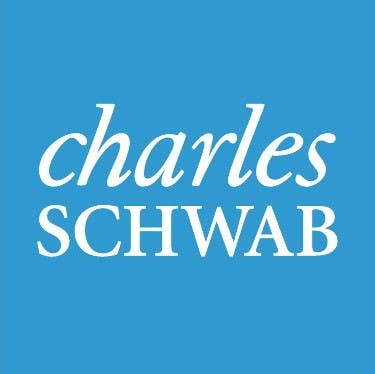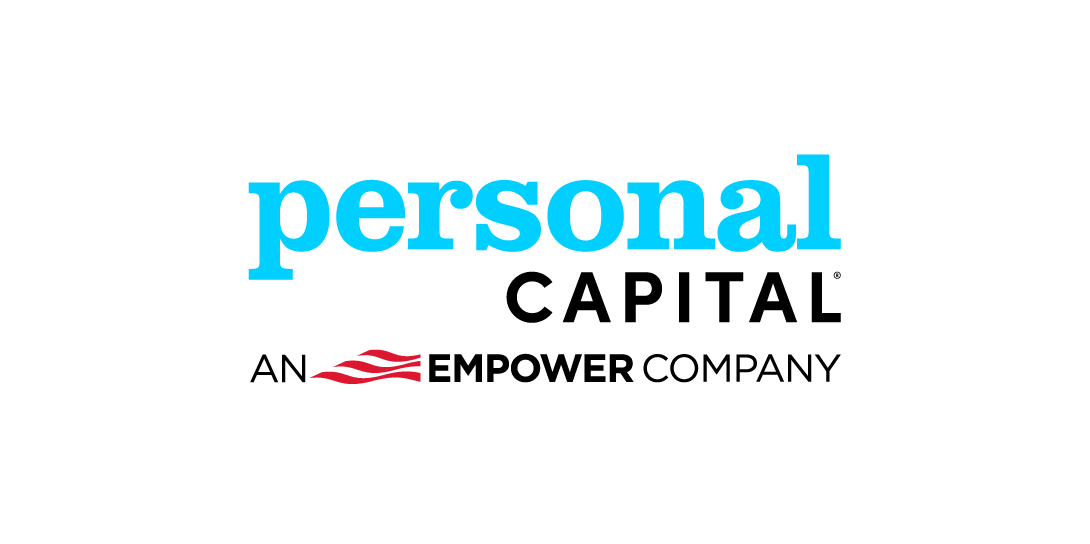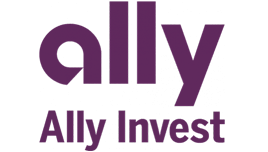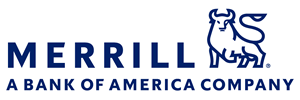Schwab Intelligent Portfolios Review 2024
The Bankrate promise
At Bankrate we strive to help you make smarter financial decisions. While we adhere to strict , this post may contain references to products from our partners. Here's an explanation for .
Schwab Intelligent Portfolios: Best for
As the robo-advisor service of the investor-friendly Charles Schwab, Schwab Intelligent Portfolios brings a robust and feature-packed offering all for an affordable price. With its basic plan, you’ll build a portfolio with low-cost funds but without a management fee. If you need access to certified financial planners, upgrade to the premium tier and get unlimited access for about the fee you’d normally pay for an hour or two of advising. Either way, you’ll have access to strong U.S.-based customer support by phone or live chat 24 hours a day. But you’ll need to bring more substantial money to get started here than at other robo-advisors: $5,000 for the entry plan and $25,000 for the premium.
Schwab’s fully featured package will be tempting for many investors, particularly if you already have an account there and are looking to expand your relationship. If cost is your only objective, then SoFi Automated Investing charges no management fee, but it may be worthwhile to step up to the premium features at Wealthfront and Betterment.
We want to know what you think about Schwab Intelligent Portfolios
Do you have experience with Schwab Intelligent Portfolios? Let us know your thoughts.
Schwab Intelligent Portfolios: In the details

- No management fee for basic plan
- Access to human advisors
- Variety of investment options

- No management fee for basic plan
- Access to human advisors
- Variety of investment options
Pros: Where Schwab Intelligent Portfolios stands out
Affordability
Schwab Intelligent Portfolios has two service tiers – basic and premium. They both offer good value, although at different price points, and they target audiences with varying needs.
The base-level service offers key features of a robo-advisor at no fee: portfolio management, auto rebalancing and tax-loss harvesting, though you’ll need at least $50,000 to receive the tax-loss harvesting feature. That fee is lower than what you’ll find across the industry, where the standard is about 0.25 percent. To put that in perspective, you’re NOT paying about $25 annually for every $10,000 you have invested at Schwab.
The premium-level service ups the game in one key way – unlimited access to advisors with a certified financial planner (CFP) designation – and it could be a game-changer for many clients. These advisors must operate by a fiduciary standard, that is, in your best interests.
The cost: $30 a month plus a one-time $300 set-up fee. It’s an attractive price, especially if you’re flush with cash because you’ll pay one flat monthly price regardless of how much money you bring to the table. In contrast, most robo-advisors charge a percentage of your assets, so that fee keeps growing as your assets grow.
Essentially, Schwab is trying to attract two groups with its robo-advisor: entry-level investors with some but not a lot of money and those with a bit more who can see the value in its premium tier.
Of course, investors will also have to pay for the ETFs they’re invested in, as they would at any robo-advisor or if they invested on their own. Schwab says that a typical portfolio would have an expense ratio of between 0.02 and 0.19 percent. In terms of money, that would be a cost of $2 to $19 annually for every $10,000 you have invested there.
Premium-tier human advising
Just a few more words on Schwab’s premium tier because it tries to solve a problem that many investors have with traditional robo-advisors: the lack of a human advisor for less routine questions and more specialized expert support. So by adding a human advisor into its offering, Schwab is trying to bridge a gap in what a typical robo-advisor provides. That’s the big added feature of the premium tier and likely the most compelling reason for you to upgrade to it.
But you’ll have to bring at least $25,000 to take advantage. For that reason, the premium tier is not likely to make sense for many investors. And depending on your needs, it may not even make sense at this minimum. At the minimum threshold, you’ll pay an effective fee of 1.4 percent, though that rate falls quickly as you grow your assets. Sitting on a million bucks? You’re still paying only that $360 fee, an effective rate of below 0.04 percent. So it can be highly beneficial for the mass affluent.
The premium tier provides serious value for those who can bring the money here. And you can get access to human advisors for much less than the $100,000 that rival Betterment requires.
Bankrate staff insights
“Schwab really hits the mark with its flat-rate pricing and unlimited access to advisors,” says one Bankrate staffer with an account here. “The pricing is great if you want to access fiduciary advisors, and it feels almost too good to be true. You could easily spend that money in one session with an advisor elsewhere. You get a ton of low-cost investment options, too.”
Customer support
One of Schwab’s top strengths as a broker is its customer support, whether that’s via phone, chat or physical branches. So it’s good to see that robo-advisor customers have access to the company with the same high level of service as its brokerage customers. That includes 24/7 access to U.S.-based customer support via phone or chat.
You’ll also be able to go into a Schwab branch, at roughly 400 locations, for further help. For some clients, this physical presence may be an advantage over online-only rivals.
Broad range of investment options
In total, Schwab Intelligent Portfolios uses 51 different ETFs across 27 different asset classes, and these form the building blocks of all potential portfolios. A larger range of investment choices may allow the robo-advisor to tailor the portfolio better to achieve desired outcomes.
Schwab offers three broad portfolio strategies from which it can customize your individual portfolio:
- A global strategy, which includes U.S. and international stocks, fixed income and cash
- A U.S.-based strategy, which includes U.S. stocks, fixed income and cash
- An income-focused strategy, which offers more exposure to “blue-chip” companies, higher-yielding assets such as preferred stocks and other short-term floating-rate notes
The robo-advisor can also substitute tax-free municipal bonds in place of fixed-income securities, where it may make sense for taxable accounts and higher-income individuals.
Smooth onboarding
The onboarding process is as smooth and as seamless as these things go. It’s particularly easy if you’re already a Schwab client, because much of your personal information is already loaded into the account, and all you need to do is verify that it’s correct and agree to some legalese.
From there you’ll answer questions about your goals, risk tolerance and return expectations. Are you saving for a specific goal, such as college, a house or retirement? The robo-advisor takes those specific needs into account as it creates your portfolio.
As you go through the questions, you can see your portfolio allocations take shape in a pie chart to the left. You’re comfortable with risk and want to buy more stock when the market is down? Watch your allocation to stocks climb! If you decide later that you don’t like your portfolio allocation, you can redefine your profile and receive different allocations.
You can be up and running in 10 minutes easily, and then you’ll just need to fund the account. If you already have assets at Schwab, you can quickly transfer them over and be on your way.
Educational resources
As an investor-friendly outfit, Schwab does a lot to help its clients succeed, including by helping educate them. You’ll have access to a wide variety of articles on personal finance, tax tips, buying a home, how to save for retirement and almost any type of other thing related to your wealth. Schwab also offers webcasts, podcasts, a magazine and even workshops at its branches.
Cons: Where Schwab Intelligent Portfolios could improve
Account minimum
There’s no question that Schwab’s minimums are way above what the rest of the industry typically requires to open an account (i.e., nothing or virtually nothing). You won’t be able to access even the basic service without bringing $5,000 to the account, and the premium tier requires a much heftier $25,000.
In the case of the premium tier, it may already be a moot point if you have relatively few assets. Why pay the monthly fee, especially if you don’t need access to human advisors? For the basic service, though, you’ll have to show some financial commitment to access Schwab’s no-fee package.
Tax strategy
One downside to Schwab Intelligent Portfolios is that you’ll need at least $50,000 in the account to take advantage of its tax-loss harvesting service, which has the robo trying to maximize your tax benefit. So if you have the minimum amount on either the basic or premium tiers, you still won’t be able to access this potentially valuable feature. That’s too bad, as major competitors like Wealthfront and Betterment provide this feature to all users.
You’ll have to specifically opt into tax-loss harvesting, which you can do as you open your account or later.
Invested heavily in Schwab funds
Let’s be very clear: Schwab uses many of its own branded funds in constructing your portfolio, and that’s one way it can afford to offer its robo-advisor at no end cost to investors. By investing your money in its own funds, it earns fees from those investments.
There’s a conflict of interest here, but Schwab discloses it clearly (not just in the fine print as other robo-advisors do) and does not duck the issue at all. In fact, Schwab discloses which ETFs it’s using for a given investment category. So you can easily look up the costs of these funds.
For stock funds (as of June 2024), Schwab funds are the primary choice for most investment selections, while Vanguard funds make up a large portion of secondary ETFs. For bond funds, Schwab selections comprise just a handful of the primary choices, with Vanguard and other well-regarded names dotting the field.
What does this mean for you? It may mean you’re paying more for a category than if you went with an independent robo. But it may also mean that you’re getting the lowest expense ratio on the market. And it looks like this second option is closer to the truth.
In comparing the robo’s primary and secondary ETF selections, Schwab funds were at least as cheap as the secondary funds being used. That doesn’t mean it’s using the cheapest ETFs on the market, but if they’re beating a discount leader like Vanguard, they’re doing something right.
Finally, as a practical matter, even if Schwab doesn’t use the very cheapest fund, it’s offering average expenses of between 0.02 and 0.19 percent on its investment portfolios. So if the broker were charging a slightly higher price of 0.01 or 0.02 percent, it would end up costing you literally $1 or $2 annually for every $10,000 you have invested – small potatoes.
No fractional shares
Schwab unfortunately doesn’t offer fractional shares as part of its robo-advisor program. That’s too bad since, in many respects, Schwab is so investor-friendly regardless of how much money you bring. To wit, Schwab’s brokerage allows investors to buy partial shares with as little as $5.
Fractional shares let smaller investors get started with less money, though perhaps the higher account minimum here helps make the fractional shares something of a moot issue for many. So this likely won’t be a dealbreaker for many who are considering Schwab.
Review methodology
Schwab Intelligent Portfolios customer reviews

Schwab Intelligent Portfolios has 27 reviews
Dive into community reviews below and see what others think about Schwab Intelligent Portfolios.
In July 2024, Bankrate collaborated with a third-party vendor to survey 800 brokerage and robo-advisor account holders nationwide. Bankrate and our vendor collected and summarized account holder responses to five rating questions on a 5-point scale as well as open-ended reviews of the account experience. Responses are based on individual account holder product details, and therefore cannot be verified for accuracy. User ratings are unedited and have not been reviewed or approved by the associated brokerage or robo-advisor, nor do these responses reflect Bankrate's own expert review of these banking products.
Community Reviews
Thank you for sharing your experience with Bankrate





















